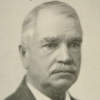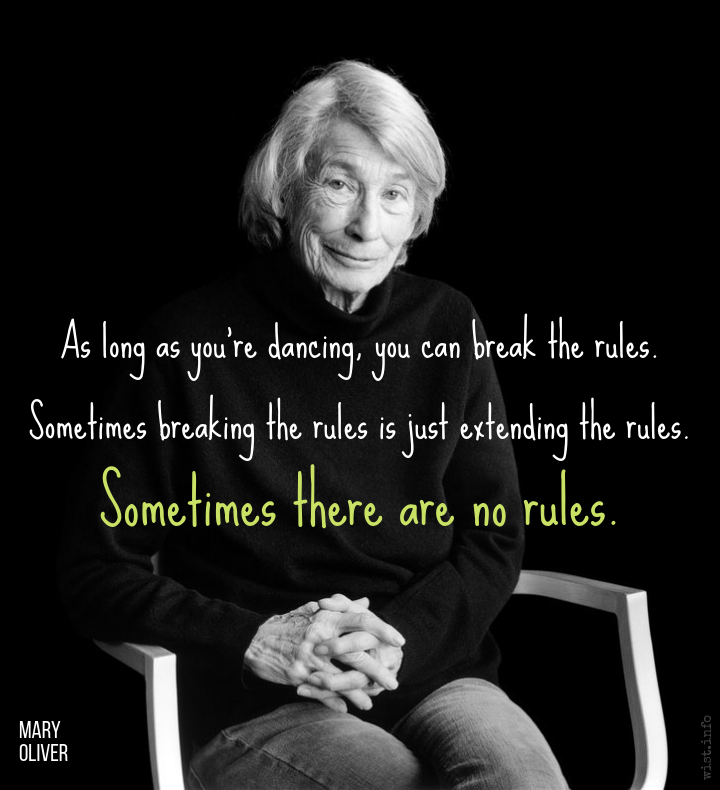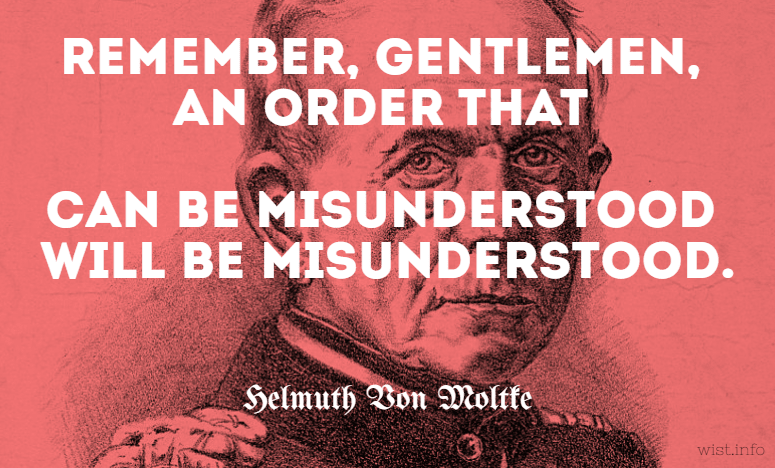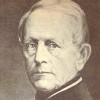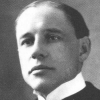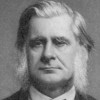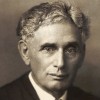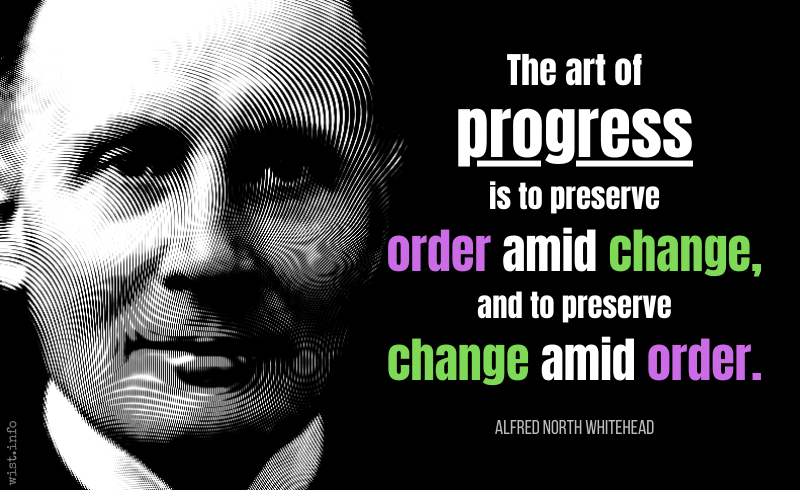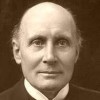There, all is order and loveliness,
Luxury, calm and voluptuousness.[Là, tout n’est qu’ordre et beauté,
Luxe, calme et volupté.]Charles Baudelaire (1821-1867) French poet, essayist, art critic
Les Fleurs du Mal [The Flowers of Evil], # 49 “L’Invitation au Voyage [Invitation to the Voyage],” ll. 13-14 (1857 ed) [tr. Scott (1909)]
(Source)
Also in the 1861 ed. (#53) and the 1868 ed. (#54). (Source (French)). Alternate translations:
There all is beauty and symmetry,
Pleasure and calm and luxury.
[tr. Squire (1909)]
Where everything is beautiful, rich, quiet, honest; where order is the likeness and the mirror of luxury; where life is fat, and sweet to breathe.
[tr. Symons (1913), prose poem version]
There, restraint and order bless
Luxury and voluptuousness.
[tr. Millay (1936)]
There'll be nothing but beauty, wealth, pleasure,
With all things in order and measure.
[tr. Campbell (1952)]
There all is order and beauty,
Luxury, peace, and pleasure.
[tr. Aggeler (1954)]
All is order there, and elegance,
pleasure, peace, and opulence.
[tr. Howard (1982)]
Everything there is order and beauty, luxury, calm, voluptuousness.
[tr. Scarfe (1986)]
There, all is order and leisure,
Luxury, beauty, and pleasure.
[tr. McGowan (1993)]
There, there is nothing but order and beauty, luxury, calm and sensual pleasure.
[tr. Clark (1995)]
It is a land of perfect peace,
Beauty and joy that never cease.
[tr. Lerner (1999)]
There, there's only order, beauty: abundant, calm, voluptuous.
[tr. Waldrop (2006)]
Quotations about:
order
Note not all quotations have been tagged, so Search may find additional quotes on this topic.
But you, Roman, remember, rule with all your power
the peoples of the earth — these will be your arts:
to put your stamp on the works and ways of peace,
to spare the defeated, break the proud in war.[Tu regere imperio populos, Romane, memento
(Hae tibi erunt artes), pacique imponere morem,
Parcere subjectis et debellare superbos.]Virgil (70-19 BC) Roman poet [b. Publius Vergilius Maro; also Vergil]
The Aeneid [Ænē̆is], Book 6, l. 851ff (6.851-53) [Anchises] (29-19 BC) [tr. Fagles (2006), l. 981ff]
(Source)
Comparing the Roman "arts" to the arts at which other nations excel (metalwork, sculpture, oratory, astronomy).
(Source (Latin)). Alternate translations:
Be thou ambitious how to govern best,
In these arts, Roman, thou must be profest.
That we a peace well grounded may injoy,
Subjects to spare, and Rebels to destroy.
[tr. Ogilby (1649)]
But, Rome, 'tis thine alone, with awful sway,
To rule mankind, and make the world obey,
Disposing peace and war by thy own majestic way;
To tame the proud, the fetter'd slave to free:
These are imperial arts, and worthy thee.
[tr. Dryden (1697)]
To rule the nations with imperial sway be thy care, O Romans: these shall be thy arts; to impose terms of peace, to spare the humbled, and crush the proud.
[tr. Davidson/Buckley (1854)]
But ye, my Romans, still control
The nations far and wide:
Be this your genius -- to impose
The rule of peace on vanquished foes,
Show pity to the humbled soul,
And crush the sons of pride
[tr. Conington (1866)]
But thou, O Roman, bend thy mind to rule
With strength thy people. This shall be thy art;
And to impose the terms and rules of peace;
To spare the vanquished, and subdue the proud.
[tr. Cranch (1872), l. 1069ff]
Be thy charge, O Roman, to rule the nations in thine empire; this shall be thine art, to lay down the law of peace, to be merciful to the conquered and beat the haughty down.
[tr. Mackail (1885)]
But thou, O Roman, look to it the folks of earth to sway;
For this shall be thine handicraft, peace on the world to lay,
To spare the weak, to wear the proud by constant weight of war.
[tr. Morris (1900), l. 850ff]
Thou, Roman, rule, and o'er the world proclaim
The ways of peace. Be these thy victories,
To spare the vanquished and the proud to tame.
These are imperial arts, and worthy of thy name.
[tr. Taylor (1907), st. 114, l. 1023ff.]
But thou, O Roman, learn with sovereign sway
To rule the nations. Thy great art shall be
To keep the world in lasting peace, to spare
humbled foe, and crush to earth the proud.
[tr. Williams (1910)]
Remember thou, O Roman, to rule the nations with thy sway -- these shall be thine arts -- to crown Peace with Law, to spare the humbled, and to tame in war the proud!
[tr. Fairclough (1916)]
Remember, Roman,
To rule the people under law, to establish
The way of peace, to battle down the haughty,
To spare the meek. Our fine arts, these, forever.
[tr. Humphries (1951)]
But, Romans, never forget that government is your medium!
Be this your art: -- to practise men in the habit of peace,
Generosity to the conquered, and firmness against aggressors.
[tr. Day-Lewis (1952)]
But yours will be the rulership of nations,
remember, Roman, these will be your arts:
to teach the ways of peace to those you conquer,
to spare defeated peoples, tame the proud.
[tr. Mandelbaum (1971), l. 1134ff]
Roman, remember by your strength to rule
Earth's peoples -- for your arts are to be these:
To pacify, to impose the rule of law,
To spare the conquered, battle down the proud.
[tr. Fitzgerald (1981), l. 1151ff]
Your task, Roman, and do not forget it, will be to govern the peoples of the world in your empire. These will be your arts -- and to impose a settle pattern upon peace, to pardon the defeated and war down the proud.
[tr. West (1990)]
Remember, Roman, it is for you to rule the nations with your power,
(that will be your skill) to crown peace with law,
to spare the conquered, and subdue the proud.
[tr. Kline (2002)]
Your mission, Roman, is to rule the world.
These will be your arts: to establish peace,
To spare the humbled, and to conquer the proud.
[tr. Lombardo (2005), l. 1012ff]
Roman, remember that your arts are to rule
The nations with your empire, to enforce the custom of peace,
To spare the conquered and to subjugate the proud.
[tr. @sentantiq (2018)]
You, Roman, remember your own arts: to rule the world with law, impose your ways on peace, grant the conquered clemency, and crush the proud in war.
[tr. Bartsch (2021)]
See also Bob Dylan, "Lonesome Day Blues", Love and Theft (2001):
I'm gonna spare the defeated --
I'm gonna speak to the crowd.
I'm gonna spare the defeated, boys,
I'm going to speak to the crowd.
I am goin' to teach peace to the conquered,
I'm gonna tame the proud.
A new Power is rising. Against it the old allies and policies will not avail us at all. There is no hope left in Elves or dying Númenor. This then is one choice before you, before us. We may join with that Power. It would be wise, Gandalf. There is hope that way. Its victory is at hand; and there will be rich reward for those that aided it. As the Power grows, its proved friends will also grow; and the Wise, such as you and I, may with patience come at last to direct its course, to control it. We can bide our time, we can keep our thoughts in our hearts, deploring maybe evils done by the way, but approving the high and ultimate purpose: Knowledge, Rule, Order; all the things that we have so far striven in vain to accomplish, hindered rather than helped by our weak or idle friends. There need not be, there would not be, any real change in our designs, only our means.
J.R.R. Tolkien (1892-1973) English writer, fabulist, philologist, academic [John Ronald Reuel Tolkien]
The Lord of the Rings, Vol. 1: The Fellowship of the Ring, Book 2, ch. 1 “The Council of Elrond” [Saruman to Gandalf] (1954)
(Source)
Man feels the need to rake leaves, clean up the summer’s remnants, proclaim his tenancy by making things neat and tidy. Nature doesn’t bother. The tree thrives on its own trash and the see sprouts in the parent plant’s midden heap. Each new season grows from the leftovers from the past. That is the essence of change, and change is the basic law. Nature hasn’t time to be neat and tidy.
You think that a wall as solid as the earth separates civilization from barbarism. I tell you the division is a thread, a sheet of glass. A touch here, a push there, and you bring back the reign of Saturn.
John Buchan (1875-1940) Scottish novelist, poet, and politician; Governor-General of Canada (1935 -1940)
The Power-House, ch. 3 (1916)
(Source)
For that is an absurd position which is taken by some people, who say that they will not rob a parent or a brother for their own gain, but that their relation to the rest of their fellow-citizens is quite another thing. Such people contend in essence that they are bound to their fellow-citizens by no mutual obligations, social ties, or common interests. This attitude demolishes the whole structure of civil society.
[Nam illud quidem absurdum est, quod quidam dicunt, parenti se aut fratri nihil detracturos sui commodi causa, aliam rationem esse civium reliquorum. Hi sibi nihil iuris, nullam societatem communis utilitatis causa statuunt esse cum civibus, quae sententia omnem societatem distrahit civitatis.]
Marcus Tullius Cicero (106-43 BC) Roman orator, statesman, philosopher
De Officiis [On Duties; On Moral Duty; The Offices], Book 3, ch. 6 (3.6) / sec. 28 (44 BC) [tr. Miller (1913)]
(Source)
(Source (Latin)). Alternate translation:
For as to what is usually said by some men, that they would not take anything away from a father or brother for their own advantage, but that there is not the same reason for their ordinary citizens, it is foolish and absurd: for they thrust themselves out from partaking of any privileges, and from joining in common with the rest of their citizens, for the public good; an opinion that strikes at the very root and foundation of all civil societies.
[tr. Cockman (1699)]
That indeed is absurd, which some men avow, that for their own advantage they would take nothing from a parent or a brother; but that the case of other citizens is different. These men, stablish with their fellow-citizens no common right, no society for common advantage; an opinion that unhinges the whole internal intercourse of a state.
[tr. McCartney (1798)]
For that which some say, that they would take nothing wrongfully, for the sake of their own advantage, from a parent or brother, but that the case is different with other citizens, is indeed absurd. These establish the principle that they have nothing in the way of right, no society with their fellow citizens, for the sake fo the common interest -- an option which tears asunder the whole social compact.
[tr. Edmonds (1865)]
For this is absurd indeed which some say, that they would take nothing from a parent or a brother for their own benefit, but that it is quite another thing with persons outside of one’s own family. These men disclaim all mutual right and partnership with their fellow-citizens for the common benefit, -- a state of feeling which dismembers the fellowship of the community.
[tr. Peabody (1883)]
It is absurd for people to say that they will not despoil a father or a brother for their own advantage but that fellow-citizens stand on quite a different footing. That is practically to assert that they are bound to their fellow-citizens neither by mutual obligations, social ties, nor common interests. But such a theory tears in pieces the whole fabric of civil society.
[tr. Gardiner (1899)]
The contention that some people advance is absurd, of course: they argue that they would not deprive a parent or brother of anything for their own advantage but that there is another standard applicable to all other citizens. These people do not submit themselves to any law or to any obligation to cooperate with fellow citizens for the common benefit. Their attitude destroys any cooperation within the city.
[tr. Edinger (1974)]
It is necessary to distinguish between the virtue and the vice of obedience.
Lemuel K. Washburn (1846-1927) American freethinker, writer
Is the Bible Worth Reading and Other Essays, Epigram (1911)
(Source)
To many white Americans, President Obama must have been corrupt, because his very occupation of the White House was a kind of corruption of the traditional order. When women attain positions of political power usually reserved for men — or when Muslims, blacks, Jews, homosexuals, or “cosmopolitans” profit or even share the public goods of a democracy, such as healthcare — that is perceived as corruption.
Jason Stanley (b. 1969) American philosopher, epistemologist, academic
How Fascism Works: The Politics of Us and Them, ch. 2 (2018)
(Source)
It’s that moment, that brief epiphany when the universe opens up and shows us something, and in that instant we get just a sense of an order greater than Heaven and, as yet at least, beyond the grasp of Stephen Hawking. It doesn’t require worship, but, I think, rewards intelligence, observation and enquiring minds. I don’t think I’ve found God, but I may have seen where gods come from.
Terry Pratchett (1948-2015) English author
“I create gods all the time — now I think one might exist,” Daily Mail (21 Jun 2008)
(Source)
However fiercely opposed one may be to the present order, an old respect for the idea of order itself often prevents people from distinguishing between order and those who stand for order, and leads them in practise to respect individuals under the pretext of respecting order itself.
Antonin Artaud (1896-1948) French playwright, actor, director
Letter to André Gide (10 Feb 1935)
(Source)
As long as you’re dancing, you can break the rules.
Sometimes breaking the rules is just extending the rules.Sometimes there are no rules.
In short, Mort was one of those people who are more dangerous than a bag full of rattlesnakes. He was determined to discover the underlying logic behind the universe. Which was going to be hard, because there wasn’t one.
Categories, if you’ll excuse a brief digression, are a useful way to get a handle on things you don’t understand, as long as you don’t get too attached to them and forget that things like to pop out of one category and into another, and that sometimes the whole category turns itself inside out and becomes something different. It’s useful, for example, to categorize your target as a sorcerer, if he is one; but if you get too attached to your category it’ll leave you embarrassed when he suddenly pulls a knife on you.
Somebody was screaming and I had to check it wasn’t me. It could have been me. I certainly wanted to scream, but I remembered that right then and there Leslie and I were the only coppers on the scene and the public doesn’t like it when the police start screaming; it contributes to an impression of things not being conducive to public calm.
If there be, in any region of the universe, an order of moral agents living in society, whose reason is strong, whose passions and inclinations are moderate, and whose dispositions are turned to virtue, to such an order of happy beings, legislation, administration, and police, with the endlessly various and complicated apparatus of politics, must be in a great measure superfluous.
James Burgh (1714-1775) British politician and writer
Political Disquisitions, Book 1 “Of Government, briefly,” ch. 1 “Government by Laws and Sanctions, why necessary” (1774)
(Source)
For harmony makes small states great, while discord undermines the mightiest empires.
[Nam concordia parvae res crescunt, discordia maxumae dilabuntur.]
There must be either a predestined Necessity and inviolable plan, or a gracious Providence, or a chaos without design or director. If then there be an inevitable Necessity, why kick against the pricks? If a Providence that is ready to be gracious, render thyself worthy of divine succour. But if a chaos without guide, congratulate thyself that amid such a surging sea thou hast a guiding Reason.
[Ἤτοι ἀνάγκη εἱμαρμένης καὶ ἀπαράβατος τάξις ἢ πρόνοια ἱλάσιμος ἢ φυρμὸς εἰκαιότητος ἀπροστάτητος. εἰ μὲν οὖν ἀπαράβατος ἀνάγκη, τί ἀντιτείνεις; εἰ δὲ πρόνοια ἐπιδεχομένη τὸ ἱλάσκεσθαι, ἄξιον σαυτὸν ποίησον τῆς ἐκ τοῦ θείου βοηθείας. εἰ δὲ φυρμὸς ἀνηγεμόνευτος, ἀσμένιζε ὅτι ἐν τοιούτῳ κλύδωνι αὐτὸς ἔχεις ἐν σαυτῷ τινα νοῦν ἡγεμονικόν.]
Marcus Aurelius (AD 121-180) Roman emperor (161-180), Stoic philosopher
Meditations, Book 12, #14 [tr. Haines (1916)]
(Source)
Original Greek. Alternate translations:
Either fate, (and that either an absolute necessity, and unavoidable decree; or a placable and flexible Providence) or all is a mere casual confusion, void of all order and government. If an absolute and unavoidable necessity, why doest thou resist? If a placable and exorable Providence, make thyself worthy of the divine help and assistance. If all be a mere confusion without any moderator, or governor, then hast thou reason to congratulate thyself; that in such a general flood of confusion thou thyself hast obtained a reasonable faculty, whereby thou mayest govern thine own life and actions.
[tr. Casaubon (1634), #11]
Either the Order of Things are fixed by irrevocable Fate, or Providence may be worked into Compassion, or else the World Floats at Raondom without any Steerage. Now if nature lies under immovable Necessity, to what purpose should you struggle against it? If the favor of Providence is to be gained, qualify your self for the Divine Assistance: But if Chance, and Confusion carry it, and no body sits at the Helm; be you contented and Ride out the Storm patiently, for you have a Governor within you , though the World has none.
[tr. Collier (1701)]
Either there is a fatal necessity and invincible order, or a kind providence, or a confusion without a purpose and without a director. If then there is an invincible necessity, why dost thou resist? But if there is a providence which allows itself to be propitiated, make thyself worthy of the help of the divinity. But if there is a confusion without a governor, be content that in such a tempest thou hast in thyself a certain ruling intelligence.
[tr. Long (1862)]
Either the order of things is fixed by irrevocable fate, or providence may be worked into compassion, or else the world floats at random without any steerage. Now if nature lies under an immovable necessity, to what purpose should you struggle against it? If the favor of providence is to be gained, qualify yourself for divine assistance; but if chance and confusion prevail, be you contented that in such a storm you have a governing intelligence within you.
[tr. Zimmern (1887)]
Either the Necessity of destiny and an order none may transgress, or Providence that hears intercession, or an ungoverned welter without a purpose. If then a Necessity which none may transgress, why do you resist? If a Providence admitting intercession, make yourself worthy of assistance from the Godhead. If an undirected welter, be glad that in so great a flood of waves you have yourself within you a directing mind.
[tr. Farquharson (1944)]
Fatal necessity, and inescapable order. Or benevolent Providence. Or confusion -- random and undirected. If it's an inescapable necessity, why resist it? If it's Providence, admits of being worshipped, then try to be worthy of God's aid. If it's confusion and anarchy, then be grateful that on this raging sea you have a mind to guide you.
[tr. Hays (2003)]
Either predetermined necessity and unalterable cosmic order, or a gracious providence, or a chaotic ungoverned mixture. If a predetermined necessity, why do you resist? If it is a gracious Providence that can hear our prayers, then make yourself worthy of divine assistance. If a chaotic ungoverned mixture, be satisfied that in the midst of this storm, you have within yourself a mind whose nature it is to govern and command.
[tr. Needleman/Piazza (2008)]
Not every defeat of authority is a gain for individual freedom, nor every judicial rescue of a convict a victory for liberty.
Robert H. Jackson (1892-1954) US Supreme Court Justice (1941-54), lawyer, jurist, politician
“The Task of Maintaining Our Liberties: The Role of the Judiciary,” speech, Boston (24 Aug 1953)
(Source)
Dinner address at the American Bar Association Diamond Jubilee dinner. Reprinted in the American Bar Association Journal (Nov 1953) [citation 39 A.B.A. J. 961 (1953)].
In politics, again, it is almost a commonplace, that a party of order or stability, and a party of progress or reform, are both necessary elements of a healthy state of political life. […] Each of these modes of thinking derives its utility from the deficiencies of the other; but it is in a great measure the opposition of the other that keeps each within the limits of reason and sanity.
John Stuart Mill (1806-1873) English philosopher and economist
On Liberty, ch. 2 “Of the Liberty of Thought and Discussion” (1859)
(Source)
The Bill of Rights is not a suicide pact.
Robert H. Jackson (1892-1954) US Supreme Court Justice (1941-54), lawyer, jurist, politician
Terminiello v. City of Chicago, 337 U.S. 37 (1949) [dissenting]
(Source)
Common paraphrase of Jackson's actual comment:
This Court has gone far toward accepting the doctrine that civil liberty means the removal of all restraints from these crowds, and that all local attempts to maintain order are impairments of the liberty of the citizen. The choice is not between order and liberty. It is between liberty with order and anarchy without either. There is danger that, if the Court does not temper its doctrinaire logic with a little practical wisdom, it will convert the constitutional Bill of Rights into a suicide pact.
TOM: I’ll have a decaf coffee.
TRUDI: I’ll have a decaf espresso.
MORRIS: I’ll have a double decaf cappuccino.
TED: Give me decaffeinated coffee ice cream.
HARRIS: I’ll have a half double decaffeinated half-caf, with a twist of lemon.
TRUDI: I’ll have a twist of lemon.
TOM: I’ll have a twist of lemon.
MORRIS: I’ll have a twist of lemon.
CYNTHIA: I’ll have a twist of lemon.Steve Martin (b. 1945) American comedian, actor, writer, producer, musician
L. A. Story (1991)
(Source)
[T]imid men […] prefer the calm of despotism to the boisterous sea of liberty.
Thomas Jefferson (1743-1826) American political philosopher, polymath, statesman, US President (1801-09)
Letter to Philip Mazzei (24 Apr 1796)
(Source)
The chief reason warfare is still with us is neither a secret death wish of the human species, nor an irrepressible instinct of aggression, nor, finally and more plausibly, the serious economic and social dangers inherent in disarmament, but the simple fact that no substitute for this final arbiter in international affairs has yet appeared on the political scene.
Those who won our independence by revolution were not cowards. They did not fear political change. They did not exalt order at the cost of liberty. To courageous, self-reliant men, with confidence in the power of free and fearless reasoning applied through the processes of popular government, no danger flowing from speech can be deemed clear and present, unless the incidence of the evil apprehended is so imminent that it may befall before there is opportunity for full discussion. If there be time to expose through discussion the falsehood and fallacies, to avert the evil by the processes of education, the remedy to be applied is more speech, not enforced silence.
I’m not an atheist. I don’t think I can call myself a pantheist. The problem involved is too vast for our limited minds. We are in the position of a little child entering a huge library filled with books in many languages. The child knows someone must have written those books. It does not know how. It does not understand the languages in which they are written. The child dimly suspects a mysterious order in the arrangement of the books but doesn’t know what it is. That, it seems to me, is the attitude of even the most intelligent human being toward God. We see the universe marvelously arranged and obeying certain laws but only dimly understand these laws. Our limited minds grasp the mysterious force that moves the constellations.
Albert Einstein (1879-1955) German-American physicist
In G. Viereck, Glimpses of the Great (1930)
(Source)
Note this passage is not present in the Saturday Evening Post interview that was the basis for that chapter of Viereck's book.
Truth is always in danger of being sacrificed on the altars of good taste and social stability.
William Sloane Coffin, Jr. (1924-2006) American minister, social activist
Credo, “Social Justice and Civil Liberties” (2004)
(Source)
To those peoples in the huts and villages of half the globe struggling to break the bonds of mass misery, we pledge our best efforts to help them help themselves, for whatever period is required — not because the communists may be doing it, not because we seek their votes, but because it is right. If a free society cannot help the many who are poor, it cannot save the few who are rich.
The art of progress is to preserve order amid change, and to preserve change amid order.
Alfred North Whitehead (1861-1947) English mathematician and philosopher
Process and Reality: An Essay in Cosmology (1929)
(Source)
Based on his Gifford Lectures, University of Edinburgh (1927-28), on process philosophy.







